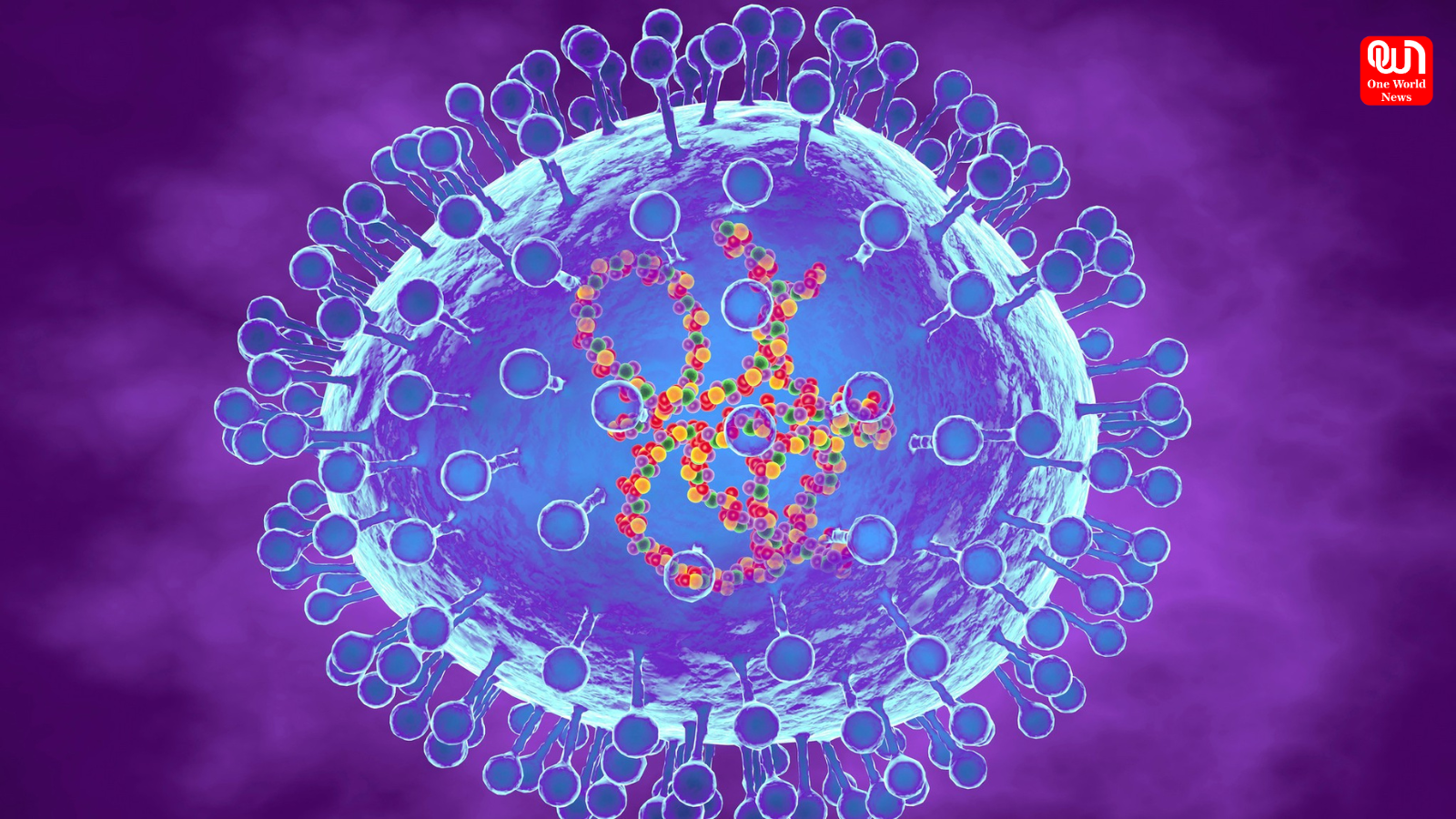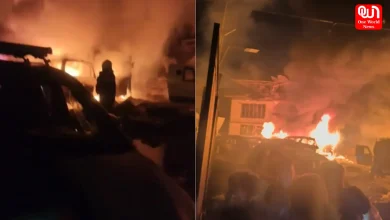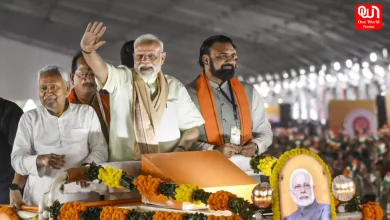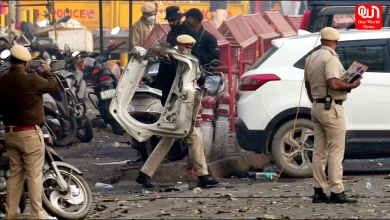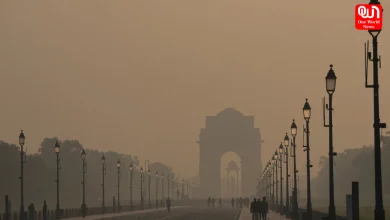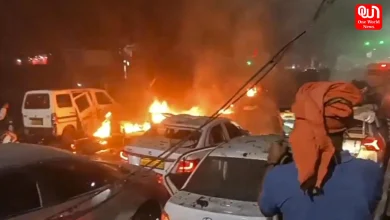Understanding HMPV: A Respiratory Virus Misunderstood as a Major Threat
HMPV, a common respiratory virus, mimics Covid-19 symptoms but isn’t deadly. Experts stress vigilance and basic precautions to prevent unnecessary panic.
Understanding Human Metapneumovirus (HMPV): A Respiratory Virus Often Mistaken for a Major Threat
The emergence of any virus that closely imitates the presentation of Covid-19 always draws much attention, and human metapneumovirus (HMPV) is the latest to draw notice. This particular virus has surfaced with increasing infections in parts of China, including children. Health experts and agencies in India highlight that though it is similar in many ways with Covid-19, it poses no such a threat.

What is HMPV? Brief Introduction
Discovered in 2001 by Dutch researchers, HMPV is a respiratory virus that predominantly affects infants and young children. According to the American Society for Microbiology, it is closely related to respiratory syncytial virus (RSV) and shares similar genetic and clinical features. The virus is a known cause of upper and lower respiratory tract infections and may serve as a trigger for asthma in some cases.
Although this virus is most worrisome for young children under five, older adults, and people with weakened immune systems, it does not represent a new threat. Research has indicated that most individuals acquired immunity to this virus earlier on in life, and it has low potential to cause severe illness in healthy persons.
The key symptoms of HMPV
Spread primarily via respiratory droplets when an infected person coughs, sneezes, or talks, HMPV also transmits by touching contaminated surfaces. Common symptoms include:
•Nasal congestion
•Cough
•Fever
•Sore throat
Respiratory infection of bronchitis, pneumonia, and LRTIs might characterize the infection in a few cases, especially among vulnerable populations, though these complications are rare.
Why Experts Say There’s No Need for Alarm
Indian health experts and global authorities have rejected the idea that HMPV can cause a crisis like the Covid-19 pandemic. Former scientist with the Indian Council of Medical Research (ICMR) Dr. Raman Gangakhedkar says HMPV is neither new nor dangerous for the majority of the population.
This virus has been circulating around the world for decades, and most people have already developed immunity. It mostly affects young children who haven’t yet built their defenses or people with compromised immunity,” he said.
Infectious disease specialist Dr. Kirti Sabnis shares this view. “HMPV causes illnesses that are generally mild and short-lived, lasting only three to six days. It’s a respiratory virus like many others we encounter every year.
Understanding the Situation in China
Recent reports indicate an increase in HMPV cases in China, especially in northern provinces and among children under 14. Social media claims of overwhelmed hospitals and crematoriums have drawn comparisons to the Covid-19 outbreak. However, these claims remain unverified, and neither China nor the World Health
Organization (WHO) has declared an emergency related to HMPV.
According to Indian experts, the spike has fallen within natural cycles of common respiratory infections compounded by bad weather, air quality, and New Year’s reunions. Conditions favoring these viruses’ dissemination, especially in respiratory diseases such as HMPV, already prevail.
Comparison between HMPV and Covid-19
Like Covid-19, HMPV exhibits common symptoms; there are also main distinctions:
1. Mortality and Severity: HMPV very rarely causes serious disease in immunocompetent people, whereas Covid-19 was characterized by widespread mortality.
2. Transmission: HMPV is less transmissible than SARS-CoV-2, the causative agent of Covid-19.
3. Immunity: Immunity is induced in the vast majority of people during childhood. Covid-19 was associated with a completely novel virus with no prior immunity in the population.
Read more: Pakistan Alleges Indian Operations Beyond Borders: A Response to International Claims
Dr. Arjun Khanna is a pulmonologist at Amrita Hospital who stresses that this is one common respiratory virus, by no stretch, something to go panicky over. “It’s basically just a self-limiting upper respiratory tract illness,” he said.
Prevention Awareness: Being Watchful
Experts need not make everyone panic, however, recommend everyone be vigilant on preventing HMPV and the spread of the other respiratory viruses. The preventions are the following:
• Masks: Wearing a well-fit N95 reduces the chance for transmission in close or crowded area.
• Hand Hygiene : Frequent wash up with soap under flowing water.
• Avoid crowds: Limit crowding, not to get a chance of contamination.
• Taking Good Respiration Hygiene: Cover mouths and noses using a tissue.
Parents are encouraged to observe children for persistent cough, labored breathing, or fever and to seek medical care if such symptoms persist.
Read more: PM Modi Unveils Transformative Projects in Delhi: A Focus on Education, Housing, and Infrastructure
Challenges and Way Forward
Although the risk of HMPV is relatively low, its emergence in China calls for vigilance and preparedness. Indian health departments have been proactive in testing for the virus since 2017 using the latest technologies, such as FilmArray multiplex PCR.
Metropolis Healthcare’s Dr. Niranjan Patil reckons environmental factors are also behind the virus transmission. “Cold weather, poor air quality, and increased crowding during festivals do see people falling prey to more respiratory viruses like HMPV,” he said.
Conclusion: Awareness, Not Panic
HMPV is not a new virus, nor is it a threat to global health. Its increase in certain regions is a reminder of the importance of respiratory hygiene and seasonal vigilance.
Indian health experts and authorities reassure the public that HMPV is manageable with preventive measures. The public can take care of themselves and their communities by staying informed and cautious. Concerns over this virus, therefore, will not escalate into unnecessary alarm.
We’re now on WhatsApp. Click to join.
Like this post?
Register at One World News to never miss out on videos, celeb interviews, and best reads.

